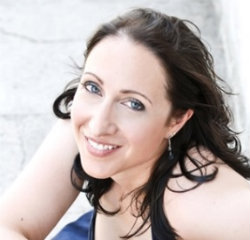Rants and Other Great Stuff...
Okay, listen up: If you've ever been one of those people to criticize a book as being too long (or short) based on the number of pages in the book, you need to stop. When you see someone else doing it, please enlighten them--you’ll do the universe a favor and bring sanity to writers everywhere. Really, the book may feel too short or too long, and it may feel that there were just pieces missing from the story but if that’s the case, it’s not because of how many pages were in the book. For serious. Many, many things decide the number of pages in a book that have nothing whatsoever to do with the actual "length" of a story:
- The shorter the chapters are in a book, the more pages it will have because of all the extra end of the chapter white space. In reverse, longer chapters = fewer pages.
- The more dialogue there is in a book, the more pages it will have, again due to lots of white space.
- The shorter the paragraphs in a book, the more pages it will have. White space again.
- The larger the print, the more pages it will have.
- And so forth.
Here are some other facts about book length:
- The contract determines how long a book will be. That's right, contract not the author. Weird, huh?
- A book's length is determined by how many words it has, not pages.
- My contracts call for approximately 100,000 words per book.
- 100,000-120,000 words, give or take, is industry standard for genre thrillers that aren't written by heavyweight word-dense scribes like Tom Clancy.
- It's more difficult to sell a debut thriller if it is much over 100,000 words. (Longer books are more expensive to print, and debut authors are a financial risk for the publisher.)
- I've had to cut as much as 40,000 words out of my books during the editorial process.
- In spite of that, I still haven't managed to get a Vanessa Michael Munroe down to 100,000 words.
In other words, a book may feel small (or long), but that kind of depends on what you're comparing it to. Also, genre novels are expected to fit within a certain word count and maintain a specific "feel," and that can create issues when it comes to things like characterization, showing backstory, and/or the length of some types of non-action sequences. Let's put it this way: when you're writing a story that has been slatted as a genre thriller with an upper word limit and you've got too many words, which do you think get's cut first--character or action? Authors have a lot less control over the process than you might imagine, especially those who are still in the early stages of their careers.
These days it seems anyone who's taken a writing course finds it god-awful offensive if a published story, especially if written by someone with much less talent than they have, is full of--OMG-how-shall-we-ever-survive--gasp! telling not showing! That's probably because they haven't gotten to the part yet where a book editor suggests picking up the pace by cutting out a whole lot of show. You see, when you're writing for an audience, the biggest sin isn't telling a thing, it's boring the reader. Sometimes showing is dreadfully boring and telling is just the way it's gotta happen. Here's a spoiler: don't worry, everyone survives.
Taylor Stevens is an award-winning and New York Times bestselling novelist who—by odds and expectations—should never have become either successful or published. Like many aspiring authors Stevens had no credentials or platform, and no direct route into the publishing world. But, unlike most, she was also limited by a life of cultural isolation and a sixth-grade education.
Born into an apocalyptic cult and raised in communes across the globe, Stevens grew up as a child laborer, cooking and cleaning for up to a hundred at a time, caring for younger commune children, or out on the streets begging on behalf of commune leaders. Books, movies, music, and pop-culture from the outside world were strictly forbidden, and she finally gained unlimited access to fiction after returning to the United States in her early thirties. Her books have since been published in over twenty languages, with The Informationist optioned for film by James Cameron’s production company, Lightstorm Entertainment.

|


